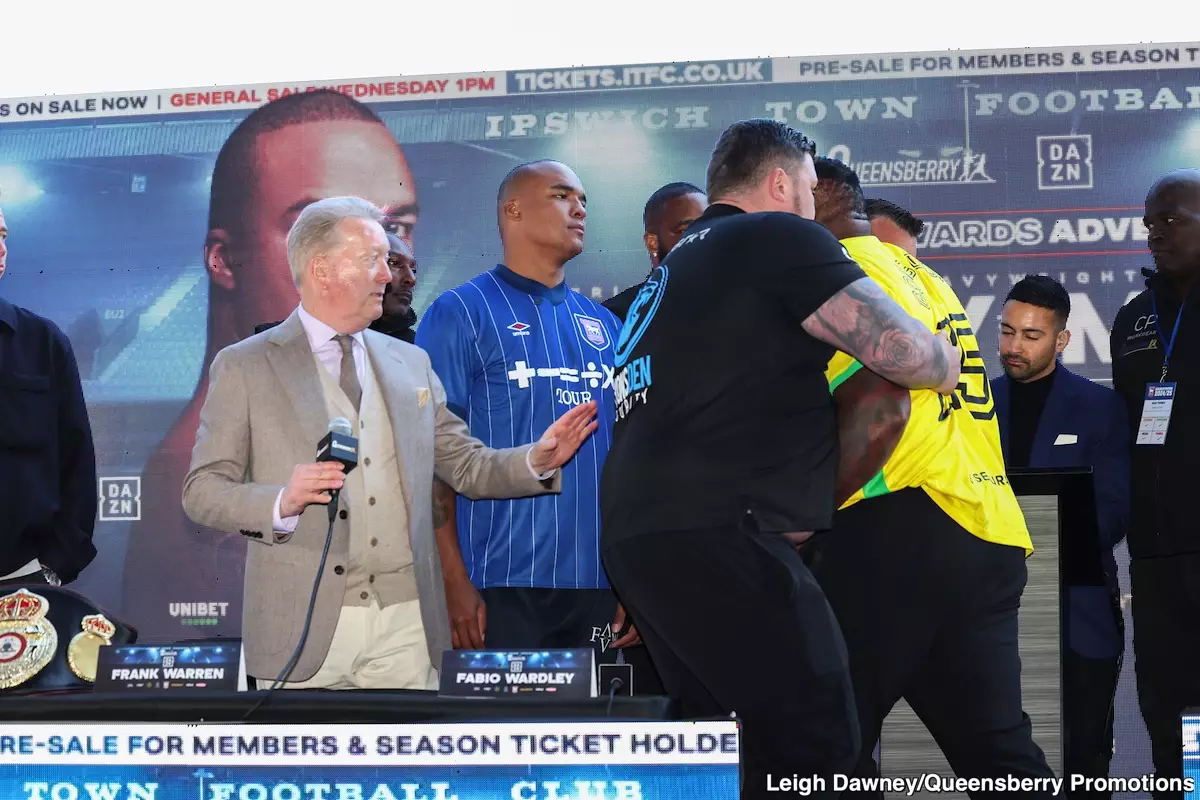In the world of boxing, few narratives spark as much controversy and debate as that of Jarrell ‘Big Baby’ Miller, a heavyweight known for both his formidable skills and his doping scandals. Just two years post-suspension for performance-enhancing drugs, Miller is set to face Fabio Wardley, the current #1 WBA contender, in an eliminator bout. Promoter Frank Warren claims Miller deserves this opportunity, arguing that he’s served his time and should be given a fresh start. However, the gravity of Miller’s past offenses raises critical questions about how seriously the sport takes integrity and the implications of his history on the broader boxing landscape.
Miller’s journey to this forthcoming fight is marked by inconsistency. After his suspension, he stepped into the ring twice, each time returning without a victory—a tenth-round knockout loss to Daniel Dubois and a draw with Andy Ruiz. A fighter’s record usually serves as a litmus test for their ability to compete at the highest levels, and with a record of 0-1-1 in his last two matches, it’s perplexing that Miller is seen as a suitable opponent for Wardley, particularly given the stakes of this match-up. Shouldn’t the elite levels of professional boxing be reserved for those who prove their worth in the ring, not just for those who can draw attention?
Trading Integrity for Draws?
Warren’s defense of Miller starkly contrasts the opinions of many boxing fans and pundits alike. Although he claims Miller is entitled to fresh opportunities akin to a prison sentence where one can start anew, it remains disconcerting that a fighter with a history of doping—twice caught where integrity should reign supreme—is being granted such a platform. No matter how one looks at it, Miller’s past taints the fight’s credibility, particularly when young, promising talent is deprived of the same chances purely based on reputation and marketability.
Many enthusiasts and analysts have expressed valid concerns regarding the choice of Miller as a fight for the rising Wardley, who remains untested against top-tier opposition. Wardley, boasting a clean record, arguably deserves opponents who challenge him and validate his aspirations of reaching championship status. Instead, the strategic decision to pit him against a fighter who, by all indications, presents more of a marketing opportunity than a competitive challenge, places Wardley at risk of stagnating in a division that thrives on fresh and formidable matchups.
The Charisma Factor in Matchmaking
One of the more glaring issues surrounding Miller’s selection stems from the stark comparison to charismatic figures like Tyson Fury, whose popularity has been cultivated through not only talent but also savvy match-making against notable, high-profile opponents. Unlike Fury, Wardley lacks the magnetic personality to promote himself effectively, necessitating intelligent fight selections that allow him to ascend without the baggage—mental and physical—that Miller brings.
Critically, Warren’s decision to promote this fight also raises the question of credibility. Although Miller may still draw an audience with his brash persona and previous reach within boxing circles, these qualities shouldn’t overshadow a fighter’s current skill set and recent performance. Boxing is a sport that’s forever evolving; new talents emerge continually, while the audience craves authenticity over gimmickry. It could lead one to question whether Miller, with his extra weight and evident struggles, truly belongs in the ring competing for a prestigious title shot.
Revisiting Regulatory Measures
While it is true that Miller has re-entered the boxing world with improvements in his training—testing clean under VADA and UKAD protocols—reliance on strict regulatory measures alone isn’t enough to ensure fair competition. If sober judgment is disregarded in favor of entertainment value or nostalgic familiarity, boxing risks alienating its core fanbase, those who yearn for integrity above all else.
Miller’s situation calls for a reflection on how the boxing community values its image, particularly in an era where actions are under constant scrutiny. A decision rooted solely in pragmatism without considering the deeper implications on the sport’s reputation could prove detrimental. Frank Warren claims this fight is a necessary step for both fighters, yet one must ponder—at what cost does this matchup come? The sport of boxing deserves more respect than simply catering to the loudest personality in the room.

